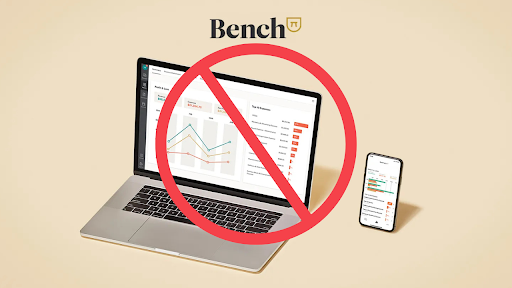Why Your Business Needs Tax Planning

“Did I just pay more than I should have?”
Without proper tax planning, this is the question every business owner will be asking themselves over the next couple of months.
Overpaying is common for business owners and unfortunately, it has the same effect as throwing money down the drain.
Truth is, the only way to ensure you’re not overpaying and that you are getting the most out of your money is to stick to a strong and well-thought-out tax plan.
What is Tax Planning?
Tax planning is an essential extension of your company’s forecast. As the name suggests, it takes a deep look into the tax side of your earnings and spending and uses this information to build strategies that lower your overall tax implications and put more money in your pockets.
Ideally, a strong tax plan will serve as a guide throughout the year, helping you to make financial decisions with tax savings in mind.
Typical Aspects of a Good Tax Plan
While tax plans cover a wide range of aspects and are customized for your business, each one requires a strategy in a few primary areas.
Profit-Sharing Contributions to Your 401K
While most deductions just help to minimize your tax liability, this strategy puts the money into your retirement nest egg. Many business owners are not aware that their 401k plan allows for profit sharing, and that the maximum amount they can put away was $58,000 for 2021 ($64,500 including catch-up contributions). For 2022, these amounts increase to $61,000 and $67,500.
Building a retirement plan for yourself and your employees as soon as possible is a great way to:
- Minimize your tax payment this year.
- Ensure you have money when you retire.
- Deduct contributions to your employees as a business expense.
There are 2 key elements to this strategy:
- For a cash basis taxpayer, most deductions have to be spent by the last day of the year in order to deduct it. This is not the case for a profit-sharing deduction. You have until 9/15 of the following year to file your tax return and make the profit-sharing payment in order to deduct it for the prior tax year, which gives you time to plan your cash flow.
- Example: For your 2021 tax return, you can extend the return and submit the return and profit-sharing payment no later than 9/15/2022 and still get to deduct the payment as a 2021 deduction.
- Another great element of this strategy is the ability to create a “permanent” tax savings for yourself. While many deductions are a mechanism to just delay taxes until a future year, this strategy has the ability to permanently save you on taxes. If you contribute and deduct the payment in a year where you are in a high tax bracket, say 35%, and when you retire and take the money out of your retirement account you are in a 15% tax bracket then you permanently saved 20% tax.
Outline of Available Tax Deductions
What you can and cannot deduct for your business changes every year, as certain tax provisions expire, limitation amounts change, or the ability to deduct an expense is revoked. You can review our free tax deduction guide to see what was available in 2021.
If you aren’t aware of them or making sure you are hitting all of their requirements, you’ll miss out on savings as you may be spending money in areas because you thought you were getting a tax deduction for it, when really you didn’t and it was a waste of your business resources.
Including these in your tax plan lets you see how and when you should be spending your money to get the most benefits in return.
Outline of Available Tax Credits
There are plenty of credits your business could potentially utilize, but if you aren’t aware of them or making sure you are hitting all of their requirements, you’ll miss out on savings.
A commonly missed opportunity in the brewery and restaurant industries is the FICA tip credit.
Read about this and a few other credits you should know about in our free tax credit guide.
Tax credits are a dollar-for-dollar tax reduction strategy, so you should make sure to maximize them.
Electing a Change in Accounting Method
Most industries follow 2 basic methods of reporting taxes: Cash Basis reporting and Accrual Basis reporting. When your business is small you have the choice to pick which method you want to use. Once you reach a certain size you are forced to use and report on the Accrual Basis. If your business is approaching this limit it can drastically change your tax liability so it is essential that you plan ahead for this scenario.
On the other hand, if you report taxes on the Accrual Basis there is an opportunity that you could elect to change back to the Cash Basis method. Under the 2018 tax reform, the cash basis method is an available tax reporting option for most businesses that have average annual gross receipts for the prior 3 years of $25 million or less. The prior general threshold was $10 million.
Business Entity Review
Tax implications vary depending on your business structure. Whether you are an LLC, C-corporation, or S-corporation, you have the ability to change your structure.
Many businesses save money with this strategy, but talking with your accountant before making a change is advised. They’ll be able to discuss the pros and cons and ensure you are filing the paperwork for proper taxation.

What Can Tax Planning Do For You?
Tax planning comes with plenty of benefits. Here’s what you can expect with a good tax plan:
More Money and an Increased Cash Flow
The primary benefit of a good tax plan is saving money. Strategies like retirement planning, utilizing credits and deductions, and restructuring your business all have saving money in mind.
When you are aware of all of the things you need to be doing to get the most out of your money, you can be confident you are not overspending.
These additional savings lead to more money coming into your business, and therefore, an increased cash flow, which as you know is key to financial success.
Guide You to Better Decision-Making
Your tax plan is essentially useless if you don’t use it. However, when you regularly refer back to your tax plan, you can lean on the strategic planning you did at the beginning of the year to guide you through your decision-making.
With your tax plan serving as a guide, everything you do will already have lower tax implications in mind.
No Surprises on Your Tax Bill
One of the best parts of tax planning is it looks ahead to the future. You’ll no longer be waiting till the end of the quarter or end of the year banking on your guesstimates to be correct.
Barring any dramatic changes to your business or the economy, your tax plan will outline everything you will owe when tax payments come due. You won’t have to worry about under or overpaying or being hit with hidden fees.

Need Help With Your Tax Planning?
There are plenty of good reasons to build a tax plan for your business. However, before you jump into planning, consider working with an experienced accountant, like U-nique Accounting.
Whether you are a start-up, or 3rd generation small business, all of our plans include tax planning services that put your business in the center so we can guarantee more savings, better decision-making, and no surprises.



